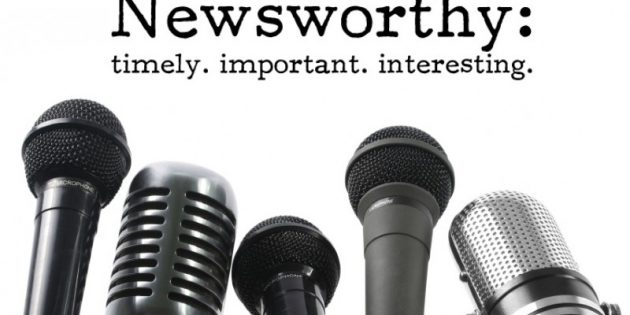One way to keep your book and message timely is to find a way to become newsworthy. You can do that in a number of ways, and a good place to being is with the calendar.
It’s now the month of March, and time to look at Chase’s Calendar of Events. Chase’s is an event-listing book and is the ultimate go-to guide for special days, weeks and months.
As we all know, March is the month of green– St. Patrick’s Day. Do you have a way to make your book and its message timely for St. Patty’s Day? Off the top of my head, I think of my friend Steve Shomler, who has a book called Portland Beer Stories. St. Patrick’s Day and green beer just go together, so there are ways Steven can make his book timely again.
What else is March known for? And what other opportunities are there to tie your book into those events to make it newsworthy and timely? Let’s take a look…
March is:
- American Red Cross Month
- Credit Education Month
- Employee Spirit Month
- International Ideas Month
- International Listening Awareness Month
- National Clean Up Your IRS Act Month
- National Craft Month
It’s also…
- National Umbrella Month (perfect for Oregon!), and Sing with Your Child Month.
Can you tie into any of the above celebrations? If so, you can become newsworthy.
But the calendar is not the only way to do this. There are a number of additional ways, including:
1. Be Local: If you are a local expert, take advantage of the media right in your own backyard. The fact that you are local can make you newsworthy.
2. Be contrarian: If most everyone has the same point of view on a trending topic, it’s boring. Be the one to say, “That’s a myth,” and then share your perspective. Many media folks are professional storytellers, and good stories have conflict. If you disagree with the common approach, you’re more likely to receive coverage than if you agree.
3. Incident: Has something gone wrong in the community or the country that you can comment on as an expert? Anything that goes wrong has the potential to become newsworthy.
4. Extremes: If you are the first, the last, the best, the worst, the biggest, the smallest, stressing that can make you more newsworthy.
5. New: We’ve talked about this one many times, and it’s worth repeating. It’s no coincidence that the word “news” contains the word “new.” News stories have to answer the questions, “why you, why now?” Stories that don’t are considered “old news” and usually receive little coverage, unless there is a compelling follow up angle (or you can use one of the tips here to be timely again.)
6. Timely and Relevant: Can you tie your book into what is currently going on in the news? Is there a prominent story that you can comment on as an expert? If so, you can get attention.
7. Scandal: Scandals of any kind are almost guaranteed to be deemed newsworthy. Hopefully you are not the subject of the scandal, but with your expertise, you may be able to offer tips or insights regarding one.
8. Incompetence: The corporate executive, politician, or celebrity who can’t seem to get it right will almost always draw the critical eye of the press. Are you able to offer advice to the incompetent person?
9. Surprising: Stories with an unexpected hook are very appealing to media. If your study discovers that twinkies are really good for you, that might get you some coverage.
There are almost always ways to make your book more relevant. You have to pay attention to the news and our culture, and figure out a way to be a part of the conversation.
To your success!
Joanne
P.S. Oh, hey, I just found out that Chase’s is taking entries for their 2019 publication. Let me know if you’re interested in creating your own special event! Joanne (at) joannemccall (dot) com.
P.P.S. By the way, if you know anyone who would benefit from regular Savvy Sunday News updates with tips on how to get more media coverage, suggest they consider signing up for it here.

